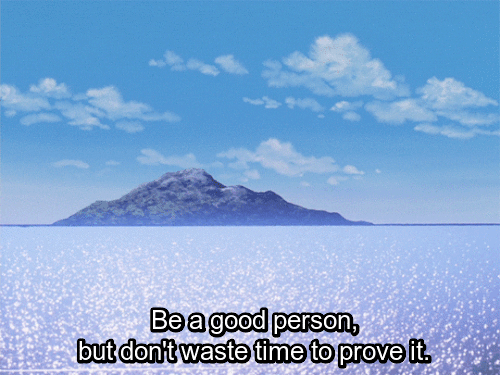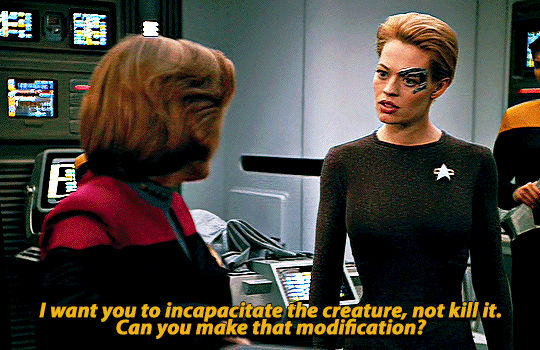#Compassion and Ethics
Explore tagged Tumblr posts
Text
The Permeability of the Self: A Stoic-Buddhist Inquiry into Interbeing, Ethical Maturity, and Collective Realisation
It is a recurrent motif in both ancient and modern contemplative traditions that the apparent separateness of beings is a distortion—an epistemic delusion born from a particular kind of unexamined consciousness. The Stoic Buddha, by Raffaello Palandri From the vantage point of avidyā / अविद्या (ignorance in Buddhist epistemology) and the false belief in a permanent, isolated self (ātman /…

View On WordPress
#Anātman#Bodhisattva Ideal#Buddhism and Modern Science#cognitive science and ethics#Collective Ethics#Compassion and Ethics#Cosmopolis#Daniel Siegel#David Loy#dependent origination#Embodied Mind#Enactivism#Evan Thompson#interbeing#Interpersonal Neurobiology#Jay Garfield#Marcus Aurelius#meditation#Neoliberalism Critique#New book#Nāgārjuna#Oikeiosis#philosophical anthropology#Pierre Hadot#Pratītyasamutpāda#Process Philosophy#Raffaello Palandri#Raffaello Palandri Writer#relational ontology#Self and Consciousness
0 notes
Quote
The real hero is always a hero by mistake; he dreams of being an honest coward like everybody else. [...] He suffers and keeps his mouth shut; if anything, others then exploit him, making him a myth, while he, the man worthy of esteem, was only a poor creature who reacted with dignity and courage in an event bigger than he was.
Umberto Eco, Travels in Hyperreality
160 notes
·
View notes
Text
There are moments when you must ignore the rules in order to do what is right. You must keep this in mind, lest you adopt the false belief that you are always constrained by the rules. If you believe this, you might do wrong by quietly following the rules instead of doing the right thing, which also happens to be forbidden.
Read more...
73 notes
·
View notes
Quote
One should always be striving for others’ well-being. Even what is proscribed is permitted for a compassionate person who sees it will be of benefit.
Śāntideva, Bodhicaryāvatāra, Crosby & Skilton tr. (5:84)
92 notes
·
View notes
Text

#begood#goodness#kindness#compassion#empathy#integrity#authenticity#selflessness#service#altruism#virtue#morality#ethics#character
649 notes
·
View notes
Text












Star Trek Voyager 4E16 - Prey
Tuvok: You missed. Since species 8472 invaded the ship, you've become increasingly agitated. Seven: They were the only species to offer true resistance to the Borg. They destroyed millions of drones, hundreds of our worlds. I have reason to be agitated.
---
Janeway: A single act of compassion can put you in touch with your own humanity. Seven You are trying to justify your present decision. Janeway: No, I'm trying to help you see this as an opportunity to grow. I know you don't want to do it, Seven, but I'm telling you as your Captain, and as your friend, you won't regret it. Seven: No. Your decision is tactically unsound. We will be surrounded by Hirogen ships in approximately two hours. If we do not surrender the creature, they will destroy us. A lesson in compassion will do me little good if I am dead.
#star trek voyager#voyageredit#seven of nine#kathryn janeway#emh the doctor#the doctor (emh)#voyager 4x16#my edit#startrekedit#trek edit#seven's pragmatism early on in the series#combined with her fear of species 8472#the kind of thinking shaw wanted her to do on picard s3#but also next to janeway#seven is the other person who would#do what needed to be done#janeway is tethered by her hard won compassion#hirogen#seven at this point can't see past her own collective (voyager)#its an interesting development#out of all the voyager crew#seven is a looks like she can kill you but can actually kill you#this moment of seven's life is such an interesting look#into who she will become 25 years later#i love when seven and janeway brush up against#each other's philosophies and ethics#its always such a fascinating time
117 notes
·
View notes
Text
*This poll was submitted to us and we simply posted it so people could vote and discuss their opinions on the matter. If you’d like for us to ask the internet a question for you, feel free to drop the poll of your choice in our inbox and we’ll post them anonymously (for more info, please check our pinned post).
#polls#poll#moral compass#tumblr polls#incognito polls#random polls#tumblr poll#poll time#fun polls#yes or no#ethics
27 notes
·
View notes
Text
sometimes i wish i wasn't such a pussy and would eat meat bc sometimes that costco rotisserie chicken really do be lookin convenient and for only five bucks............
#me: [eats dairy]#[eats eggs]#the dairy and egg industry: [terrible for animals]#me: I can't eat meat that's makes me feel bad#???? make it make sense???#I have long ago embraced the fact that my eating habits are not ethically consistent#alas. my utterly hypocritical worldview and moral compass will not let me consume the flesh of a land animal (or an octopus)
22 notes
·
View notes
Text
Morals and Ethics

Hello Friends!! to preface: This post is not here to police anyone on what is the 'correct' way to practice. My aim on this post is to be culturally and magically informed, so this isnt going to be a take down of any belief or path line. Instead this post is offered up as a way to not only build your own moral frame work, but get you thinking about where you stand magically and enhance how you practice! Our moral frameworks are all unique, something that would be a faux pas in your practice might be something thats culturally common in others, so lets throw on our thinking caps and get started!
What is building an ethical and moral framework?
Building an ethical background in witchcraft involves establishing a set of principles, values, and guidelines that guide your magical and spiritual practices! In essence It helps ensure that your actions align with your moral compass (Wherever it may lie). This background can help you make informed decisions, cultivate energy, and maintain a respectful and balanced relationship with both you and your magic.
Some religions and paths have their own moral and ethical framework, for example lyma is this idea of "something to be washed away" and is a big deal when practicing within Hellenic Spaces! It would be immoral to approach an altar without washing your hands if they were dirty, but on the flip side some cultures actively encourage dirty hands like people who worship earth within their gardens. Depending on your path you might have a specific framework.
Another aspect is moral frameworks change and that is ok!! Its important we aren't stagnate and its ok to change your mind and feel like you want to change things up. That is totally reasonable and people do it all the time like with politics, religious affiliations, jobs, and more! Ethical and Moral compasses can change just like we do.
How to build an ethical framework
Self-Reflection: Start by exploring your own values, beliefs, and moral code. Reflect on what is important to you, what you stand for, and how these values relate to your magical practices. Also now would be the time to decolonize your beliefs and explore your biases. Its ok to acknowledge your bias, as long as you are working through it. If you dont know what decolonizing your beliefs is I left a helpful video above, just click 'decolonize your beliefs'
Research and Study: Deep dive into different ethical systems and philosophies. Familiarize yourself with various witchcraft traditions, such as New age spirituality, Pagan magical systems, and country/area specific + their associated ethical guidelines. Read books and articles about ethics in witchcraft whether you agree or disagree. During this time you are simply collecting as many perspectives as possible and comparing them to how you feel, don't feel pressured to follow something if you don't feel it applies to you.
Connect with a Mentor or Community: If possible, seek guidance from an experienced witch or spiritual space who can share their ethical insights and offer advice on building your own ethical framework. The best part is, different spaces will produce their own ethical codes of conduct. For example some spaces don't allow love spell discussion for example, which is an ethical guideline.
Create Your Own Code: Based on your self-reflection, research, and guidance, create your own personal code of ethics. This code should reflect your values and guide your magical practices. It might include principles like harm none, respect nature, work for the greater good, or take no shit. Wherever you feel you sit, walk with it. Whatever comes natural to you explore it. Write down what you believe as a symbol, but do so in pencil so you can change it as needed!
Regularly Reevaluate: As you gain experience and your understanding of ethics evolves, revisit and update your ethical code. It's important to grow as your spiritual journey progresses like I mentioned above. You are not a static person, allow yourself to experience your moral compass and how to bends. Allow yourself to be fluid and honest. Not everyone is 'love and light' or 'fuck authority' your allowed to be who you need to be!
Different Types of Ethics in Witchcraft:
Note: This is not every type of ethics, but rather a couple examples of the ethics you may see in your research and which group it belongs too. This area is not meant to endorse or critique an ethical guideline but instead showcase the many that do exist.
The Wiccan Rede: "An it harm none, do what ye will." This is a central ethical guideline in Wicca, emphasizing the avoidance of harm to others as a core principle. Another one is The Threefold Law, this law suggests that the energy you send out, whether positive or negative, will return to you threefold (three times what you sent out). This encourages practitioners to be mindful of their actions.
Green Witch Ethics: Green witches emphasize their connection to nature and the importance of nurturing and protecting the environment. Their ethical background often centers around conservation, sustainability, and working with the Earth's energies respectfully.
Personal Responsibility: Some witches adhere to a more individualistic code of ethics, focusing on personal responsibility and accountability for their actions.
Balancing Left hand and Right hand: For some, ethical considerations involve finding a balance between Right and Left hand magic, and acknowledging the potential consequences of working with both, one, or neither. The right and left hand path are types of magical systems that involve different attitudes towards magic, the right hand emphasizing healing and selflessness, and the left hand emphasizing individuality and shadow aspects.
Respect for Spirits and Deities: Many witches emphasize the importance of showing respect and gratitude to the spirits, deities, and entities they work with, recognizing their agency and autonomy.
Are there any absolutes that I should be aware of?
Absolutes are ethical things that you do need to make sure you are integrating! These are really important things to note when you are learning, because if you do choose to disregard these you could contribute to some really bad concepts that intrinsically cause harm to real people
Respect - Cultural awareness, avoiding appropriation, and looking out for other people can be important. Its important that you fully evaluate a moral system before indulging in it. For example: In the love spell discussion and lot of cultural practioners voices are left out of the discussion, same with baneful discussions. Its important to listen to many groups of people and take stances that dont turn peoples cultures into a monolith, demonize them, or silence them.
Hate groups and cults - Its important that you check where a belief comes from and see if it matches with any hate groups or cult rhetoric. These groups create really flashy and easy to digest claims to try and push an agenda kind of like a salesmen. Their whole job is to try and push you into their group so they can get money, power, fame, and in some cases carry out atrocities. This corresponds with that decolonization conversation from earlier, because it can help keep you and other witchy friends safe!
Nuance - Its important to keep nuance in the conversation. Don't take extremely black and white stances if you aren't knowledgeable on the subject. I think even advanced practioners need to remember to keep nuance in their opinions and keep an open mind when presented with new information or moral ideals. Keep an open dialogue when you are having conversations, and remember to keep asking yourself why you believe the things you do.
Remember that there is no one-size-fits-all approach to building an ethical background in witchcraft. Your ethical code should be a reflection of your personal beliefs and values. It's essential to be true to yourself and to strive for a harmonious practice that aligns with your own spiritual journey! Enjoy the ride :)
Tip Jar
#witchblr#pagan witch#witch#magical theory#grimoire#witchcraft#culturalexploration#baby witch#ethics#moral compass#nuance#researching magick#magick#witch community
116 notes
·
View notes
Note
The backstory a character has wouldn’t make me feel any more or less empathetic towards them; if during the series they did something that would make me hate them they could have the sobbest story and walk to hell and back - that wouldn’t suddenly make me like them or whatever. Something past related would explain certain behaviour, but would not justify completely nor excuse it.
Well, that’s your problem, I mean, for me it does matter to know someone’s background to decide whether I find them more or less likeable. I don’t feel sorry for the story of rich kids who have everything and still choose to act like shit, but I do understand that someone who has nothing and has only ever experienced violence might not have the tools to behave in any other way.
I get the feeling that a lot of you have never left your homes or have a super narrow view of the world, or your social circle is incredibly limited, because honestly there are so many lives, so many contexts, and so many situations out there that actually do explain why someone wouldn’t act the way they “should.”
Or maybe it’s that I went to a Catholic school where they told us that whoever is without sin should cast the first stone—which is a really nice way of saying you should probably shut the fuck up before judging someone for doing something you might very well do yourself. Or maybe it’s that I work with prisoners in the process of social reintegration. Or maybe it’s that I’ve spent enough years in therapy to understand that context shapes behavior, and ignoring that is just completely lacking in empathy—but denying it is a load of absolute bullshit.
15 notes
·
View notes
Text
Usually, when I think of the living food in Danny Phantom, I have to carefully not let myself get caught up in the implications of food coming to life and—judging by how often the hotdogs are described as waging war—potentially attaining sentience... only to for some reason be completely and callously disregarded as beings by our main characters, and- ANYWAY, the point I'm actually trying to get to here is: it's now occurred to me that, all that other stuff aside, if you look at it another way, the living (-dead?) food is kind of nice/interesting, because it's a food problem on par with, like, extreme food poisoning that could kill you, but treated as goofy and fun and a nothingburger in comparison to everything else happening in the story. I'm suddenly finding I can interpret it as sort of soothing, in that sense. The living food as metaphor for the bacterial/fungal/viral load in contaminated food, but instead of being invisible and then making you horrendously sick unexpectedly, it's bright glowing green, unignorable, and ripe for joking about. Something something absurdity and humor as coping strategy for the fear of food contamination and food-borne illness.
#danny phantom#overthinking it#at what point is it no longer ethically acceptable to eat the ghost food?#at what point is it no longer ethically acceptable to eat the ghost blobs#that Danny is often-enough depicted as eating (at least in fanfic)?#granted#that isn't really any different of a question than “at what level of sentience is it no longer acceptable to eat an animal”#like#I find it hard to argue that eating a clam is morally bad#but on the other hand maybe I just don't understand clams properly#because octopus don't have brains as we usually think of them either - they've just got their neural system#spread out all over the place - and they're smart as all hell#also#there's the issue of humans repeatedly defining intelligence by human metrics while entirely disregarding all mental skills that#are not useful to humans or which animals surpass as at#such as chimps being better at visual matching games (like the card game where you have to remember what is on each face-down card iirc)#or squirrels remembering---even if they do forget some—a huge percentage of the nuts they hide across miles and miles of land#not even accounting for things like senses we don't have#such as birds that have a magnetic compass type sense for migration#humans have this bad habit of defining intelligence as precisely and only the things that let us draw a linear scale with us at the top#ANYWAY#overthinking the fuck out of it#nvm#:P#I do not in fact think we have even established that “more intelligence” = “more worth” or that “unintelligent” = “okay to eat”#personally my barometer is whether something has an awareness#not even necessarily of itself in the way people like to talk about human-like self-awareness#but of the world#it has a conscious existence? I'm not fucking eating it#that's the line for me
17 notes
·
View notes
Text
Odin’s pathetic like imagine having literally a thousand years to raise a kid to do what you tell them and then they don’t so bad you have to lock them away in another dimension and/or exile them as a mortal to another planet and/or throw them in a dungeon for the rest of their life
#like really?? you had a centuries to come up with a parental plan for loyalty and all you managed was.... ?????#bro fumbled HARD#even the one he kidnapped had no loyalty like feelings and attachment sure but he had a moral compass stronger than the bedtime stories#imagine being Odin and your blood kid you’ve raised as a replacement heir cares for the adopted sibling more than you or the imperial empire#Thor really changed his ethics and character of a thousand years based on his brother getting teary eyed fr#king
131 notes
·
View notes
Quote
Boundless compassion for all living beings is the surest and most certain guarantee of pure moral conduct, and needs no casuistry. Whoever is filled with it will assuredly injure no one, do harm to no one, encroach on no man's rights; he will rather have regard for every one, forgive every one, help every one as far as he can, and all his actions will bear the stamp of justice and loving-kindness.
Arthur Schopenhauer, On the Basis of Morality
775 notes
·
View notes
Text
The Philosophy of Buddhism
Buddhism is a spiritual and philosophical tradition that originated in India around the 5th century BCE with the teachings of Siddhartha Gautama, known as the Buddha. Buddhism encompasses a wide range of beliefs, practices, and schools of thought, but at its core, it is concerned with understanding the nature of suffering, the path to its cessation, and the ultimate realization of enlightenment.
Key Themes in the Philosophy of Buddhism:
The Four Noble Truths:
Dukkha (Suffering): The first noble truth is the recognition that life is permeated by dukkha, often translated as suffering, dissatisfaction, or stress. This includes both the obvious sufferings of pain, aging, and death, as well as more subtle forms of mental unease and dissatisfaction.
Samudaya (Origin of Suffering): The second noble truth identifies the cause of suffering as tanha (craving or desire) and ignorance (avidya). This craving is not only for physical pleasures but also for existence, non-existence, and various forms of attachment.
Nirodha (Cessation of Suffering): The third noble truth asserts that it is possible to end suffering by extinguishing its causes, namely craving and ignorance. This state of cessation is known as Nirvana, which represents the ultimate liberation from the cycle of rebirth and suffering.
Magga (Path to the Cessation of Suffering): The fourth noble truth outlines the path to the cessation of suffering, known as the Noble Eightfold Path. This path provides a practical guide to ethical living, mental discipline, and wisdom.
The Noble Eightfold Path:
Right Understanding (Samma Ditthi): This involves understanding the true nature of reality, particularly the Four Noble Truths.
Right Intention (Samma Sankappa): Cultivating intentions of renunciation, goodwill, and harmlessness.
Right Speech (Samma Vaca): Speaking truthfully, avoiding gossip, lies, and harmful speech.
Right Action (Samma Kammanta): Acting in ways that are ethical and non-harmful, following principles like non-violence and honesty.
Right Livelihood (Samma Ajiva): Engaging in work that does not harm others and is ethically sound.
Right Effort (Samma Vayama): Cultivating positive states of mind and preventing unwholesome states.
Right Mindfulness (Samma Sati): Maintaining awareness of thoughts, feelings, and actions, leading to greater self-understanding and wisdom.
Right Concentration (Samma Samadhi): Developing deep states of meditation that lead to profound insights and the cultivation of wisdom.
The Three Marks of Existence:
Anicca (Impermanence): Everything in life is in a constant state of flux. All phenomena are transient, and clinging to anything as permanent leads to suffering.
Dukkha (Suffering): Suffering is an inherent part of existence, arising from the impermanent and unsatisfactory nature of life.
Anatta (Non-Self): There is no permanent, unchanging self or soul (atman). The belief in a permanent self is an illusion that contributes to suffering.
Karma and Rebirth:
Karma (Action and Consequence): Karma refers to the moral law of cause and effect, where intentional actions lead to corresponding consequences. Good actions lead to positive results, and bad actions lead to negative outcomes, both in this life and future lives.
Rebirth (Samsara): Buddhism teaches that beings are trapped in a cycle of birth, death, and rebirth (samsara), driven by karma and craving. The ultimate goal is to escape this cycle by attaining Nirvana.
Nirvana:
Liberation from Suffering: Nirvana is the ultimate goal in Buddhism, representing the cessation of all suffering, the end of the cycle of rebirth, and the realization of ultimate truth. It is a state of peace, liberation, and enlightenment.
Beyond Dualities: Nirvana transcends all dualities and conceptual distinctions, including the dichotomy of existence and non-existence.
Meditation and Mindfulness:
Central Practices: Meditation (bhavana) and mindfulness (sati) are central practices in Buddhism, aimed at cultivating concentration, insight, and mental clarity. These practices help individuals develop a deep understanding of the nature of reality and the mind.
Vipassana and Samatha: Two main types of meditation in Buddhism are Vipassana (insight meditation), which focuses on gaining insight into the true nature of reality, and Samatha (calm-abiding meditation), which develops concentration and tranquility.
The Middle Way:
Avoiding Extremes: The Buddha taught the Middle Way as a path that avoids the extremes of self-indulgence and self-mortification. It represents a balanced approach to spiritual practice that leads to enlightenment.
Practical Wisdom: The Middle Way also refers to the balanced application of wisdom in everyday life, guiding ethical conduct and mental development.
Dependent Origination (Pratītyasamutpāda):
Interconnectedness of All Phenomena: Dependent origination is the principle that all phenomena arise in dependence upon other phenomena. This interconnectedness means that nothing exists independently, and everything is part of a complex web of cause and effect.
Causality and the Cycle of Suffering: Understanding dependent origination is key to understanding the cycle of suffering (samsara) and how to break free from it.
Ethical Conduct:
The Five Precepts: Buddhism provides a set of ethical guidelines known as the Five Precepts, which include abstaining from killing, stealing, sexual misconduct, lying, and intoxication. These precepts help cultivate moral discipline and support the path to enlightenment.
Compassion and Loving-Kindness (Metta): Compassion (karuna) and loving-kindness (metta) are central ethical values in Buddhism, encouraging individuals to act with care and concern for the well-being of others.
Schools of Buddhist Philosophy:
Theravada Buddhism:
Focus on Early Teachings: Theravada, also known as the "Teaching of the Elders," adheres closely to the early teachings of the Buddha and emphasizes individual liberation through wisdom and ethical conduct.
Arhat Ideal: The goal in Theravada is to become an Arhat, an enlightened being who has attained Nirvana and is free from the cycle of rebirth.
Mahayana Buddhism:
Great Vehicle: Mahayana, or the "Great Vehicle," offers a broader interpretation of the Buddha's teachings and emphasizes the Bodhisattva path, where practitioners strive to attain enlightenment for the benefit of all beings.
Emptiness (Shunyata): Mahayana philosophy introduces the concept of emptiness, which suggests that all phenomena are empty of inherent existence, highlighting the interdependence and impermanence of all things.
Vajrayana Buddhism:
Diamond Vehicle: Vajrayana, or the "Diamond Vehicle," is an esoteric form of Buddhism that incorporates rituals, mantras, and meditation practices aimed at achieving rapid enlightenment. It is closely associated with Tibetan Buddhism.
Tantric Practices: Vajrayana involves complex tantric practices that are believed to transform the mind and body, leading to enlightenment.
The philosophy of Buddhism is a profound exploration of the nature of existence, suffering, and the path to liberation. Through its teachings on impermanence, non-self, dependent origination, and the cultivation of compassion, Buddhism offers a comprehensive framework for understanding and overcoming the challenges of life. Its emphasis on mindfulness, ethical conduct, and wisdom provides practical guidance for achieving inner peace and spiritual awakening. Whether through individual practice or engagement with the broader community, Buddhism continues to inspire and guide people in their quest for meaning, peace, and liberation.
#philosophy#epistemology#knowledge#learning#education#chatgpt#ontology#metaphysics#ethics#Buddhism#Four Noble Truths#Noble Eightfold Path#Dukkha (Suffering)#Anicca (Impermanence)#Anatta (Non-Self)#Karma and Rebirth#Nirvana#Meditation and Mindfulness#Middle Way#Dependent Origination#Theravada Buddhism#Mahayana Buddhism#Vajrayana Buddhism#Engaged Buddhism#Buddhist Ethics#Buddhist Philosophy#Bodhisattva Path#Compassion (Karuna)#Loving-Kindness (Metta)#Mindfulness (Sati)
44 notes
·
View notes
Text
Christianity is the religion of pity. Pity stands in antithesis to the tonic emotions which enhance the energy of the feeling of life: it has a depressive effect. One loses force when one pities. The loss of force which life has already sustained through suffering is increased and multiplied even further by pity. Suffering itself becomes contagious through pity; sometimes it can bring about a collective loss of life and life-energy which stands in an absurd relation to the quantum of its cause. ... One has ventured to call pity a virtue (in every noble morality it counts as weakness); one has gone further, one has made of it the virtue, the ground and origin of all virtue - only, to be sure, from the viewpoint of a nihilistic philosophy which inscribed Denial of Life on its escutcheon - a fact always to be kept in view.
Friedrich Nietzsche, The Anti-Christ, sec. 7
There is already a vast abundance of room for pity. It is often easy to be overcome with self-pity, that sticky substance that ruins everything it touches. My list of excuses is a long list and even as I say it, I know that under closest scrutiny they disappear, one by one. There is pity in me - pity for others. But there is something in it that cannot be trusted; it is mixed with pride, arrogance, cunning. I see this only when I expose myself to the eyes of God in the quiet time. It is now that I see what my pity really is and the sources from which it springs.
Howard Thurman, Meditations of the Heart, 49
#nietzsche#friedrich nietzsche#howard thurman#thurman#christianity#ethics#morality#compassion#pity#quote
9 notes
·
View notes
